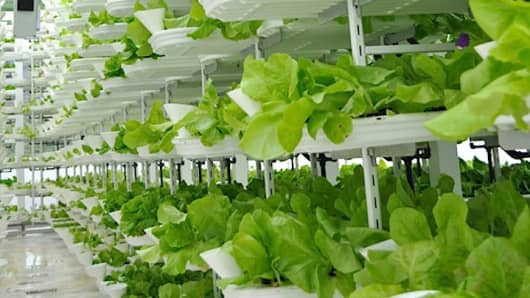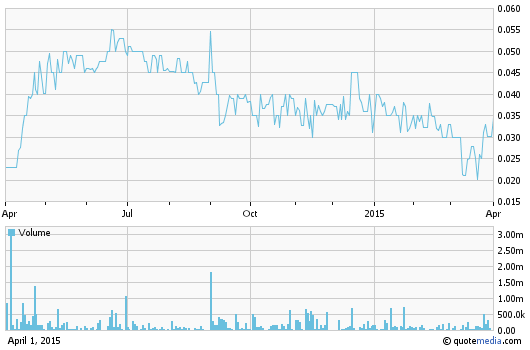Imagine a 365-day season without droughts, freezes or infestations. Or growing multiples more heads of lettuce per area of horizontal growing space, because you can grow in racks that extend to the ceiling of a warehouse. Farewell fruited plains; hello high-rise hydroponics.
From my vantage point of doing deals across a variety of segments, this is an area that has potentially massive long-arc potential for growth. Global demographic and environmental change is reshaping our world, and we, as inhabitants of this world, must in turn change as well. 850 million people, or one in nine people on Earth, today go to bed hungry. Without some sort of disruptive paradigm shift in today’s unsustainable agriculture model, the 850 million will surely increase.
These global changes are, and will continue to, impact us all. While the sequencing and severity may vary by region or economic standing (first world versus third world), the challenge, and opportunity exists everywhere.
For investors, this might be the next big thing.
Expertise in vertical farming has emerged from a variety of unusual places, including Dutch bioengineers, NASA, staffers in Antarctica research stations, indoor marijuana growers, and a professor at Columbia University named Dickson Despommier, who has been an active proponent.
Vertical farming technology capitalizes on years of research and development in photosynthesis and “grow medium” composition. In fact, plants grown in an indoor, vertical space typically are not grown in traditional soil, but rather some other growing substance. Add the falling cost of LED lighting, plus changing consumer tastes toward healthier and safer foods, and you have a trend in the making.
Advantages: There’s a controlled climate. Crops can be grown on significantly less land closer to market, which reduces transportation costs. Less water is needed — and it can be recycled. There is a diminished — or no — need for soil and fertilizer. And there are more, sometimes many more, potential harvests per year as well as higher yields.
Disadvantages include the cost of construction, and, depending upon the system, higher electricity bills. That said, newer LED systems are bringing the expense of lighting down. In certain cities, too, traditional farms and other forms of urban farming — such as crops grown on rooftops or vacant lots — may only be 60 to 100 miles away, close enough to compete with vertical farms.
Vertical-farming projects have sprouted up in several North American cities as well as in the Netherlands, Scandinavia, Germany, Korea, Japan, Abu Dhabi and Singapore among others. The farms are economically viable, on an unsubsidized basis, only in affluent countries thus far because of the cost of technology, small volumes and the associated high cost of the produce.
Often, food grown in this way is a luxury. In China for instance, wealthy people are increasingly growing their own produce at small “dachas” outside of big cities because they don’t trust where their store-bought food is coming from and whether it has been grown in a polluted environment.
Representative of a pioneer in the space, Ecopia Farms is a vertical indoor farm in the San Francisco area founded in an 8,000-square-foot warehouse by a group of Silicon Valley veterans. In purple light thrown off by the red and blue LED lighting that can make an indoor farm look like a nightclub, these techie-farmers grow organic lettuce, micro greens and other produce in soil, on racks piled on top of each other covering less than one-fifth of an acre of floor space. To grow the same amount of produce, it would take 30 acres outdoors and 30 times more water.
Scalability is vital to a vertical farm and has been the industry’s biggest challenge. An operation needs to produce enough crops to sell at a profit to the large grocery chains and not just to high-end, independent specialty markets, a much smaller segment.
Yet there is a proliferation of these innovative agriculture companies.Whole Foods has provided funding in the Chicago area to FarmedHere, a vertical farm that also raises tilapia, with the nutrient-rich byproducts in the water being filtered off to benefit the produce crops. Sometimes funding comes from surprising places. Japanese electronics conglomerate Panasonic has moved into farming technology, helping provide equipment for what it says is the first licensed indoor farm in Singapore.
To be sure, vertical farming has an infinitesimally small share of the existing agriculture market in the U.S., and many start-ups in this niche in the agriculture space will not survive, either through a faulty business model, bad management or a lack of technology. In fact, as is typical in any emerging industry, several have struggled or failed over the past decade.
Keep in mind that the average tomato today travels 1,800 miles on a tractor-trailer from farm to table. Someday, that tomato’s trip may be a few blocks by taxi — or maybe even Uber. What’s that worth?
Commentary by Craig Lawson, managing director at MHT MidSpan Partners in San Francisco.
Disclosure:None of the companies mentioned above are current clients of MHT nor does MHT have investments in any of the firms. MHT has advised Ecopia Farms on a capital raise in the past, though it is not a current client of the firm.
Source: http://www.cnbc.com/id/102557803













